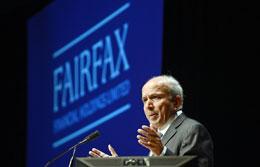Canadian dollars makes sense in India

For Anuj Ranjan, the globetrotting India head of Brookfield, the fundamental investment thesis behind buying a large telecom towers portfolio from Reliance Communications was not all that different from taking over Hiranandani's 4.5 million square foot of swish office and shopping space in the financial capital.
The world's largest democracy with a billion plus population needs to communicate, share information as well as work and play to sustain its trillion-dollar economy, said a report in the Economic Times.
More importantly, both are scaled-up, income generating, operational assets which can be leveraged further using their global expertise to build out larger platforms. Similarly, they have high margins with low capital expenditure going forward and built-in escalators.
Toronto based Brookfield is the world's 2nd biggest manager of alternative assets like real estate and private equity with $250 billion of assets and have already overshadowed traditional Wall Street heavyweights Carlyle, KKR or even Apollo Global Managament. So capital has never been a handicap for Ranjan and his 1000 odd team on the ground.
From airports to e-commerce, Canadian institutional money pouring into India like never before
Fresh from raising $14 billion to invest in infrastructure -- believed to be the largest single commitment to the sector of its kind -- the Canadian firm has been scouting around for compelling stories across emerging markets like Vietnam’s. So when both the Hiranandani and the Reliance towers came up for grabs last summer, Brookfield jumped head long.
By the end of the year, they wrote a $2.6 billion to stitch up both -- arguably among the largest FDI commitments in India in the year. The Brookfield Reliance Infratel transaction worth $1.6 billion alone is also the second-biggest private equity transaction ever in the country, behind Temasek’s $2 billion investment in Bharti Telecom in 2007.
Call it Canada calling. The bulge bracket Canadian asset managers from pension or PE funds have been the biggest India Bulls in the last one year, whipping up a storm with their investment frenzy. Between marque names like CPPIB, Caisse de depôt et placement du Quebec (CDPQ), Ontario Teachers or Brookfield and Fairfax, they have jointly committed around $7-8 billion across companies and funds so far, according to industry estimates. This would be among the single-largest country-wide commitment towards India in recent times. Such Canadian transactions mirror the excitement of PE opportunities in India, which reached fever pitch in the peak vintage of 2007-2008, reported ET.
This becomes even more striking once compared to FDI or trade data. Canada has never been a top investment source for us with bilateral trade touching a mere $6.5 billion in March 2016. That's only a tenth of neighbour US, the 5th largest FDI partner, as per the latest government figures.
“Our long investment horizon aligns to the financing and capital needs of India’s economy, growing entrepreneur culture and the strength of business in the country,” says Suyi Kim, Managing Director, Head of Asia Pacific at CPPIB.
From the building blocks -- airports, roads, power plants to warehouses, logistics parks and commercial real estate to financial services and even financial services firms and even ecommerce companies, their bets are becoming bolder and complex, cheque sizes bigger. Even "regulated sectors" like banking, airports or distress debt is fair game as are risky emerging bets like ecommerce. Last February, instead of safe havens like government securities, Ontario Teachers decided to put its pension capital to back a $200 million capital raise by Snapdeal.
The board of the sleepy community lender from Kerala and also one of the oldest private player in the country -- Catholic Syrian Bank -- will give Prem Watsa-- Canada's Warren Buffet and among the earliest champions of the India story -- their approval to acquire a controlling 51% slice of their bank through his flagship Fairfax Financial Holdings. Late last November Watsa and his close confidante Deepak Parekh managed to swing RBI to allow the first takeover of an Indian bank by a foreign investor. This was Watsa's 2nd bold bet within 1 year -- having bought into GVK's Bangalore airport earlier in 2016.
Compared to their US counterparts, the Canadians have been far more conservative in scoping out high growth emerging market opportunities. Its only in the last 3-4 years that they have looked beyond the usual happy hunting grounds of Canadian bonds, global equities (read US and other OECD countries) and hedge funds to adapt a far global and diversified portfolios.
For a country that is 40% reliant on its banks and financial institutions and another 40% on energy, volatile oil prices forced looking beyond the usual safe havens.
"The global economic balance has been changing fast so a lot of the fund managers felt they too needed to allocate assets accordingly and build global capabilities. Moreover with some of the emerging markets like China and Brazil have slowed down in recent years making India that much more attractive," said Vikram Gandhi, founder VSG Capital, a long time advisor to CPPIB.









